Martha Davis has been the voice of The Motels since the 1970’s. An early milestone for the band was their performance at the Radio Free Hollywood show in 1976, which helped to open the doors for unsigned, cutting-edge bands to perform at Los Angeles venues. The Motels then became part of the L.A. punk rock scene, and released their first album in 1979.
Things took off commercially with their third album, 1982’s All Four One, which featured the hits “Only the Lonely” and “Take the L”, aided by popular music videos on the early MTV. Other recordings followed, including the hit “Suddenly Next Summer”, before Davis decided to pursue a solo career in 1987. Davis later reformed The Motels, and in 2018 they released the new album The Last Few Beautiful Days.
This interview was for a preview article for noozhawk.com for the 8/30/19 performance by The Motels at the Chumash Casino, as part of the Lost ’80’s Live tour. It was done by phone on 8/13/19.
Jeff Moehlis: How is the tour going so far?
Martha Davis: We’ve got six shows under our belt. It’s really lovely. A lot of these bands I haven’t hung out with before, and it’s a great bunch of people. Then seeing old friends like The Tubes and stuff like that – it’s fun.
The Tubes and I have an interesting history. First of all, we did that song “The Monkey Time” together – there’s a duet on that with me and Fee [Waybill] and The Tubes. And then he was also in Bill and Ted’s Excellent Adventure. I got him that gig because they were like, “We need another person.” And we had just worked together, so I said, “What about Fee Waybill?” And so, there you go. It’s great to talk to him. I realized that I saw The Tubes the first time in Berkeley, California way back when, and they were just the craziest show you’ve ever seen in your life. We’re all a bit older, and hopefully wiser, but it’s really great. We were just hanging out the other night, just having a great time.
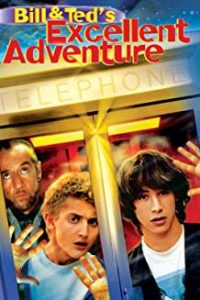
JM: Since you brought it up, how did you end up in Bill and Ted’s Excellent Adventure?
MD: An agent called and said, “There’s this wacky film. You know, you might be interested in it. I’ll send the script over.” And I just went, “This does sound kind of wacky, and kind of fun.” I had some scripts sent to me back in the day, and declined some really amazing scripts, mostly because I didn’t think of myself as an actor [laughs]. Just because you’re a musician doesn’t mean…
One of the scripts I got was David Lynch sent me Blue Velvet, to be Dorothy. I read that script, and thought, “There’s no way I could pull this off. This is just so crazy and intense.”
JM: I watched that that clip from Bill and Ted last night. What a weird movie.
MD: [laughs] Party on dude. My favorite line from that whole movie is “Strange things are afoot at the Circle-K.” I still say that to this day.
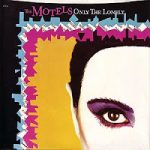
JM: Your signature song is “Only the Lonely”. How did that particular song come together?
MD: It came together without even my permission. It was kind of like I picked up my guitar and it was sitting there ready to go. It was a self-writing song, as some are, usually the best ones. When that happens I just go “Thank you” to whoever or whatever.
I’ve been writing for so many years, and writing is really my passion – I mean, singing and performing, that’s great, but the creative part is the most fun for me. I never wanted to be a singer, and I didn’t like the fame and all that stuff. I’m not a fan of that part of the biz. But I do like acting out the songs. I like getting there and telling the stories after you’ve created them, but creation is my favorite thing, and that song literally just was sitting there from beginning to end. I just sort of played it and wrote it down as it was coming out.
That sort of describes my way of writing. My particular motto is “Get the bleep out of your own way.” Try not to think about what you’re doing. Try to let it be as stream of consciousness as possible, because I think that’s where the truth lies. So that’s what I do.
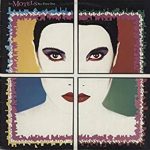
JM: That was on the All Four One album, which was a breakthrough for the band. Looking back, what are your reflections on that particular album?
MD: My favorite Motels is the first one, before we were sort of messed with too much. I wanted to be quirky and outside the mainstream, and the production on All Four One really got mainstream. There you have your double-edged sword. One side of the sword says, “Look, you’re making money”, and the other side says, “Was that really what you wanted it to sound like?” So, you know, it did its work as a pop album.
With the new album, we’re still making pop music, but it’s a little more adventurous. I don’t like to be safe, whether it’s lyrically or musically. I like something to be a little off, like “What? What’s going on?”
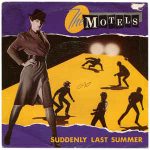
JM: The other big hit for The Motels was “Suddenly Last Summer”. After having the success with All Four One and “Only the Lonely”, how did that influence how you approached that song?
MD: I don’t know that it actually changed the way that song got approached, because that song pretty much manhandled me as well. “Suddenly Last Summer” has the longest gestation period, I think. Whereas “Only the Lonely” was just sitting there all ready to go, this one I remember the kernels, the initial seeds of that song in a moment in my backyard in Berkeley before I’d moved down to LA. I was sitting in the backyard and it was a warm summer day. I was just hanging out – it was beautiful. Then all of a sudden, this really cold wind came. You knew winter was on its way – autumn was here. It was that moment when you sensed the change is coming, and at the same time I heard this ice cream truck, and I just thought to myself that’s the last time I’m going to hear that ice cream truck.
So cut to years later [laughs], I’m in LA, and this melody wakes me up in the middle of the night [sings the keyboard part “Da da da daa da / Da da da daa da”]. So I got up and I wrote this song, and it’s so connected to that moment. It’s a place of a loss of innocence, or a time where you can’t go back. All of a sudden the seasons change, and it’ll never be the same. Things have moved on. So that’s the story on that one. And little “Suddenly Last Summer”, she’s making momma so happy. She went out and got herself a little spot on the American Horror Story, which is that TV show that everybody loves. She’s on the promos for the new season, which is all about summertime.
JM: I know that you were a part of the Radio Free Hollywood concert back in 1976. What do you remember about that concert?
MD: I remember sitting in the backyard, and we were hanging out with this band called The Dogs, and The Pop occasionally. Me being from Berkeley, California, I was kind of like, “This is ridiculous. I moved my entire life down here. I moved my two children. I don’t even like LA, and I’m here, and there’s no place for us to play.” There were two clubs in town – one was the Starwood, one was the Whisky, and neither of them could you play unless you had an album deal. So anybody that had new music that they wanted to try to get heard, probably what you had to do was pay for an expensive soundstage at SIR, and then present your stuff… And I’m like, “This isn’t fair.” I didn’t have that kind of money. None of us had any money.
I don’t know, I think I had a lot to do with it because Dean [Chamberlain] was digging up stuff about it the other day, and my name was on the permit and this and that and the other thing. We basically all pulled together. We put together about $800, which in those days was a lot of money. It was the ’70’s. I remember we hired a bouncer, we got a keg of beer or two kegs of beer, and we plastered the town with fliers. And we put on a show.
It actually did really well. I think we only lost like $80, because we let so many friends in [laughs]. And then a couple of weeks later, strangely enough the Starwood and the Whisky called us about wanting to come and perform, so I guess it worked.
JM: What was the good, the bad, and the ugly about the LA punk rock scene?
MD: Well, the good was about being ugly [laughs]. There’s that song I had on the first album called “Dressing Up” which starts off with “Ugly to keep beauty intact”. That was me. I think I was at a Bags concert and I was just sitting at the bar writing. Alice Bag went out of her way to look scary [laughs], as did all punks. It was not about being pretty. It was a backlash to that. There was plenty of ugly. The mosh pits were really scary.
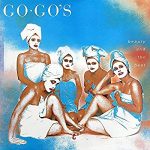
We rehearsed at a place called The Masque, which was a famous punk hangout, which was located beneath the Pussycat Theatre on Hollywood Boulevard. So just don’t look up, ever, at the ceiling. But we shared a little room with the Go-Go’s. They were just a wee punk baby band. We were lots more punkish back then. But we got signed first, and then they were like, “We’re going to move our stuff to your side of the room, and maybe we’ll get signed, too” – and they did.
You know, all of those movements are instances. There are key moments. It’s like how Nirvana was grunge, and then grunge turned into lots of grunge. There’s key moments where the punk rock thing was first happening that were so raw and so great. I remember Warner Brothers had an in-house magazine called Wax Paper, and they wanted me as a model for the cover, so my hair’s all fucked up – excuse me – and I’m in this alley way in a rubber jumpsuit or some craziness, looking all punked out.
Well, the thing that was funny was when we first moved to LA, we were too weird for the record companies – at that time it was pretty much The Eagles and Linda Ronstadt, you know the Laurel Canyon gang. Then when punk came along, we were too melodic for the punk movement [laughs], because we were. And so it took until the New Wave came along, and then we kind of fit in, because nobody was the same in the New Wave movement. All different peoples. But punk was great. A little scary sometimes. Those mosh pits… I remember one time somebody threw a full jar of peanut butter. I’m like, “You could kill somebody!” [laughs]

JM: What are your thoughts on the early MTV era, which you were a part of?
MD: It was awesome. It was totally Wild, Wild West. It really was. Nothing had gotten organized yet, especially the first two shoots that we did which were “Take the L” and “Only the Lonely”, which became a very iconic video at the time. It was done by Russell Mulcahy, who was a brilliant director. Basically, I think we shot both of those in two days for $60,000, or something ridiculous. You could not get near that these days. But it was before unions were involved and everything, and it was basically running around like, “OK, we found a spot. Can we shoot there?” “I think so.” And PA’s and runners would run out and grab actors off the street, like the old man that did the bar scene in “Only the Lonely”. He literally had just gotten off the bus from Oklahoma. He had left LA forty years before, and had been in Oklahoma the whole time, he gets off the bus and I said, “Do you want to be in a video?”, and he says, “OK”. [laughs] It was fun.
And I do love that format. It’s not really acting, but it’s a form of playing dress-up and losing yourself in the music, which is what I like to do onstage, too. It’s dissolving into the story of the song, so in that way it’s really fun. But the first time I saw myself being filmed, I had to definitely tone it down [laughs], because if you’re used to playing onstage, you’re overacting everything to a live audience, trying to play to the people in the back. Then the camera gets on your face, and you’re like, “Yikes! Nope, nope, nope.”
JM: What advice would you give to an aspiring musician?
MD: My first piece of advice is always to get the bleep out of your own way. Be prepared to suffer [laughs], and be prepared to get the stuffing knocked out of you, and be prepared to work really hard. Because it’s not easy. Maybe it’s happening on YouTube now and I’m just old-school and don’t understand, but it’s not an overnight adventure. I liken it to becoming a doctor or a lawyer. It’s usually about eight years of putting in dues, and then the only problem is we don’t have a bar exam at the end. But it was eight years for me. I started in 1971, and got signed in ’79, and that’s long, hungry years. So be ready. Have stamina.
To break through, to actually be the one that gets noticed, especially nowadays… There’s a bazillion people on the internet, and some have talent, some don’t. How do you find out? How do you make yourself different? That’s the most important thing to me with artists. What is your voice? I don’t want to hear a voice that I’ve heard ten times. Everybody sounds the same. Why do they have the same compression on their voices? Why do they have the same AutoTuning? I mean, what’s going on? Have your own voice. Be unique. Tell your own story. Don’t try to be Taylor Swift [laughs]. Be somebody else. We already have one of those.
JM: What’s in the works? Are there new recordings in the works?
MD: Oh, there’s so much. I started my own record label this year, and what I’m trying to do is get the myriad of stuff out. I have so many songs, which is not a bad problem to have, but at some point you look at them sitting in the closet and go, “I should put them out.” I have a kids album that I’m writing stories to all the songs I’ve written for that – I’m working on how to bring that about. Then I’ve got a jazz album that I did in 2011, and it’s probably ripe by now, so I’m trying to figure out that. I’ve already got the concept for the newest album, and hopefully I’m going to get the boys all up here in December for at least a week to start working on that. I’m writing a TV show with another friend of mine that’s about music, so there’s that. I try to stay busy.
JM: Sounds like it. [both laugh]

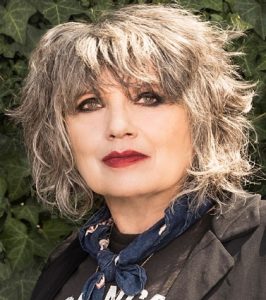
Discussion
No comments for “Interview: Martha Davis”